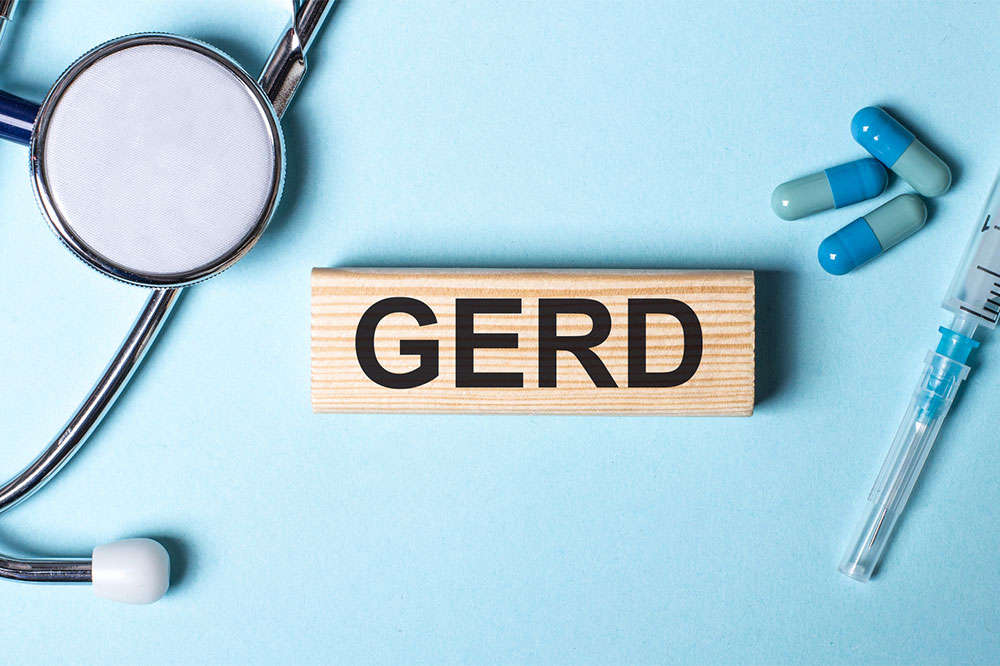Early Signs and Prevention Strategies for Digestive Health Problems
This comprehensive article explores early signs of digestive health issues, including common conditions like ulcerative colitis and Crohn's disease. It emphasizes the importance of early detection, lifestyle changes, and dietary strategies such as increased fiber and omega-3 intake to promote gut health. Recognizing symptoms like bloating, abdominal pain, and irregular bowel habits can help prevent severe complications and improve quality of life. Practical tips on hydration and exercise are also provided to support ongoing digestive wellness.

Early Signs and Prevention Strategies for Digestive Health Problems
Maintaining healthy digestion is a fundamental aspect of overall health that impacts everyone, regardless of age or activity level. Proper digestion ensures that your body effectively absorbs nutrients from food, providing the energy and vitality necessary for daily functions. Recognizing the early warning signs of digestive issues enables prompt intervention, which can prevent more severe health complications. This comprehensive guide explores common digestive conditions, their initial symptoms, preventive measures, and lifestyle adjustments that support optimal digestive health.
Digestive health problems can manifest silently or with noticeable symptoms, which often get overlooked. Early detection and management are crucial to preventing chronic issues like inflammatory bowel disease, ulcers, or nutrient deficiencies. In this article, we delve into common digestive conditions such as ulcerative colitis, Crohn’s disease, celiac disease, and anal fissures, providing insights into their early indicators. We also offer practical advice on dietary habits, lifestyle adjustments, and when to seek medical attention for optimal digestive wellness.
Common Digestive Conditions and Their Early Symptoms
Ulcerative Colitis
As a type of inflammatory bowel disease (IBD), ulcerative colitis (UC) involves inflammation and ulceration of the colon lining. It is characterized by persistent abdominal pain, diarrhea often containing blood, and urgency to defecate. If left untreated, UC increases the risk of colon cancer over time. Early recognition of symptoms, such as mild abdominal cramping and intermittent diarrhea, enables timely intervention. Treatment options include medications like aminosalicylates, corticosteroids, immune modulators, and in some cases, surgical removal of the affected colon segments. Dietary modifications aimed at reducing inflammation—such as increasing omega-3 fatty acids, reducing intake of processed sugars, and consuming fibrous foods—are also recommended.
Celiac Disease
This autoimmune disorder triggered by gluten intake causes damage to the small intestine, impairing nutrient absorption. Early signs include diarrhea, bloating, weight loss, fatigue, and nutritional deficiencies. Maintaining a strict, gluten-free diet is essential for managing celiac disease, and increasing intake of nutrient-dense foods rich in copper, folate, iron, and vitamins can facilitate healing. Regular medical assessments and dietary compliance help prevent long-term complications like osteoporosis and anemia.
Anal Fissure
An anal fissure manifests as a small tear or crack in the lining of the anal canal, often resulting from passing hard stools or chronic constipation. Symptoms include sharp pain during bowel movements, bleeding, and itching. Chronic fissures may require medical intervention, but lifestyle changes like increasing fiber intake, staying well-hydrated, and avoiding straining during defecation can promote healing and prevent recurrence.
Crohn’s Disease
This IBD affects any part of the gastrointestinal tract, from mouth to anus, leading to inflammation, ulceration, and tissue damage. Initial symptoms include severe abdominal pain, diarrhea, weight loss, and fatigue. Often linked to autoimmune responses, Crohn’s disease necessitates early diagnosis for effective management, which may involve medication, dietary adjustments, and sometimes surgery. Recognizing early signs such as persistent abdominal discomfort helps in controlling disease progression and improving quality of life.
Recognizing Early Signs of Digestive Issues
Bloating and Gas
Gas buildup causes a sensation of fullness and distension, often triggered by food intolerances or underlying digestive conditions. Bloating can be accompanied by belching, which temporarily relieves discomfort. Diet-resistant bloating warrants medical evaluation.
Abdominal Discomfort and Pain
Any persistent or severe pain in the upper, middle, or lower abdomen warrants attention. Conditions like Crohn’s, ulcerative colitis, and gastritis often evoke pain between the ribs and pelvis. Early identification and treatment can alleviate discomfort and prevent complications.
Alterations in Bowel Habits: Diarrhea & Constipation
Sudden or ongoing changes in bowel movements—such as frequent diarrhea or difficulty passing stools—may be signs of underlying disorders like IBD or irritable bowel syndrome. Addressing these symptoms promptly is vital for maintaining digestive health.
Heartburn and Acid Reflux
A burning sensation in the chest caused by stomach acid reflux, especially after consuming spicy or acidic foods like tomatoes, caffeine, or chocolate, can signal weak digestion or GERD (gastroesophageal reflux disease). Chronic heartburn should be evaluated by a healthcare provider.
Bowel Incontinence
Weakness of anal sphincter muscles can lead to involuntary stool leakage, often related to chronic constipation or diarrhea. Early diagnosis of underlying causes and management can improve quality of life.
Nausea, Vomiting, and Severe Abdominal Pain
Frequent nausea and vomiting often accompany digestive disorders like IBS. Persistent, severe pain with associated symptoms such as bloating or blood in stools require urgent medical attention for diagnosis and treatment.
Proactive Strategies to Support Digestive Health
Incorporate Omega-3 Fatty Acids in Your Diet
Foods rich in omega-3s—including fatty fish like salmon, mackerel, and tuna, as well as plant sources such as walnuts, chia seeds, and flaxseeds—possess anti-inflammatory properties that can soothe the digestive tract and reduce inflammation-related symptoms.
Boost Dietary Fiber Intake
Fiber is essential for a healthy gut. Soluble fiber, found in oats, legumes, and fruits, helps manage diarrhea by absorbing excess water. In contrast, insoluble fiber from whole grains and vegetables promotes bowel regularity and relieves constipation.
Maintain Adequate Hydration
Drinking 6 to 8 glasses of water daily assists in digestion, prevents stool hardening, and promotes smooth bowel movements. Proper hydration is a simple but vital aspect of digestive health.
Engage in Regular Physical Activity
Physical activities like walking, yoga, cycling, and swimming enhance gut motility and promote regular digestion. Establishing a routine that includes exercise can reduce digestive discomfort and improve overall gut health.





